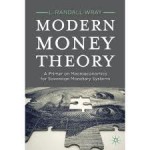By Marshall Auerback
We’ve always been a fan of Professor Paul De Grauwe from University of Leuven, who has consistently pointed out the structural flaws inherent in the original structures of the EU. Recently, Professor de Grauwe wrote an excellent analysis explaining why the latest “rescue plan” cobbled together by the Eurozone authorities is destined to fail.
The key points:
1) ECB is not currently a ‘lender of last resort’. The ECB was set up with fundamental flaws, where “… one of the ECB’s main concerns is the defense of its balance sheet quality. That is, a concern about avoiding losses and showing positive equity- even if that leads to financial instability.” This is a profoundly misconceived idea. As we have noted many times, a private bank needs capital – clearly because there are prudential regulations requiring that – but because it can become insolvent. It has not currency-issuing capacity in its own right. While the ECB has an elaborate formula for determining how capital is from the national member banks at an intrinsic level, it has no need for capital. It could operate forever with a balance sheet that if held by a private bank would signal insolvency. There are no comparable concepts for a currency issuer and a currency user in terms of solvency. The latter is always at risk of insolvency the former never, so the ECB’s focus on profitability is not only misguided, but leading to inadequate policy responses.
2) The creation of the European Financial Stability Facility (EFSF) and the ESM has been motivated by the overriding concern of the ECB to protect its balance sheet and to avoid engaging in “fiscal policy”. The problem again goes back to the creation of the euro: no supranational fiscal authority to go with a supranational central bank, which means that the only entity that can conceivably carry out “fiscal transfers” of the sort exemplified by a bond buying operation is the ECB. Sure, the actual fiscal transfers can be ‘subcontracted” to the EFSF and ultimately the ESM, but it can only work if the latter’s balance sheet is linked to the ECB’s, giving it the same unlimited capacity to buy up the bonds and thereby deal with the insolvency issue. As things stand now, per de Grauwe: “The enlarged responsibilities that are now given to the ESM are to be seen as a cover-up of the failure of the ECB to take up its responsibility of the guardian of financial stability in the Eurozone; a responsibility that only the ECB can fulfill”.
3) Related to this problem is the fact that the ESM has been given only finite resources as per Germany’s stipulation the minute it begins. It is capitalised at 500bn euros. And it’s unclear that Germany can go much further, given that there are currently 3 constitutional challenges which the ESM is now facing within Germany’s courts. This will delay ratification of the vote taken last week by Germany’s parliament to ratify the ESM’s existence, as well as limiting its firepower going forward. The ESM’s “bazooka” is in effect a pop-gun. Consequently, as de Grauwe argues, “Investors will start forecasting the moment when the ESM will run out of cash. They will then do what one expects from clever people. They will sell bonds now rather than later.”
As is clear from every FX crisis in the past, “A central bank that pegs the exchange rate and has a finite stock of international reserves to defend its currency against speculative attacks faces the same problem. At some point, the stock of reserves is depleted and the central bank has to stop defending the currency. Speculators do not wait for that moment to happen. They set in motion their speculative sales of the currency much before the moment of depletion, triggering a self-fulfilling crisis. “
Until Europe’s authorities have this figured out, the crisis will continue. All roads lead back to the ECB.












